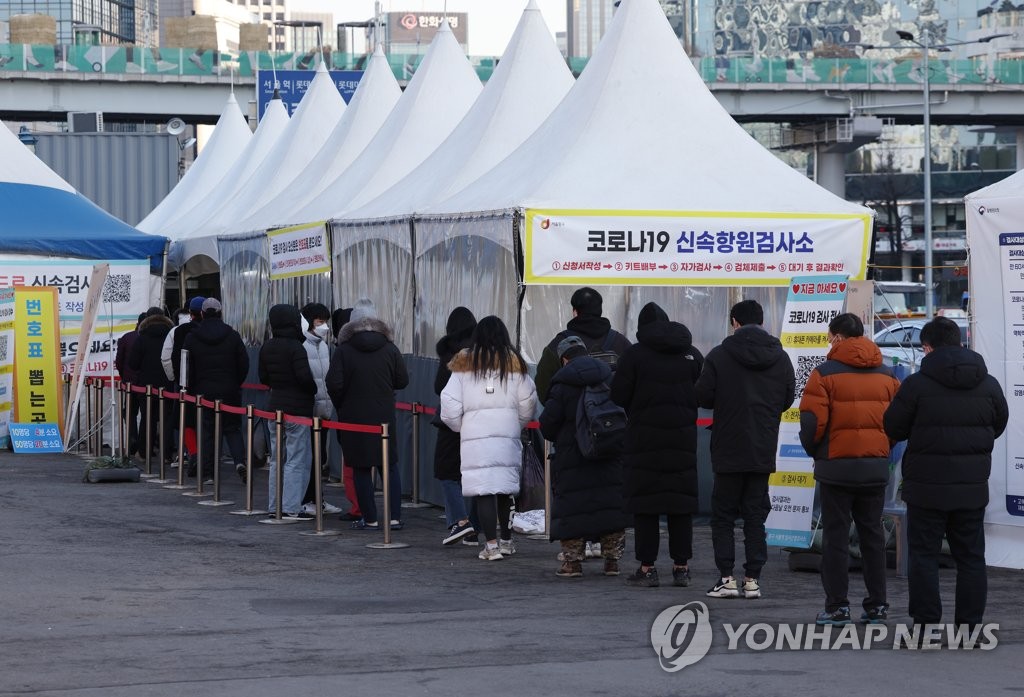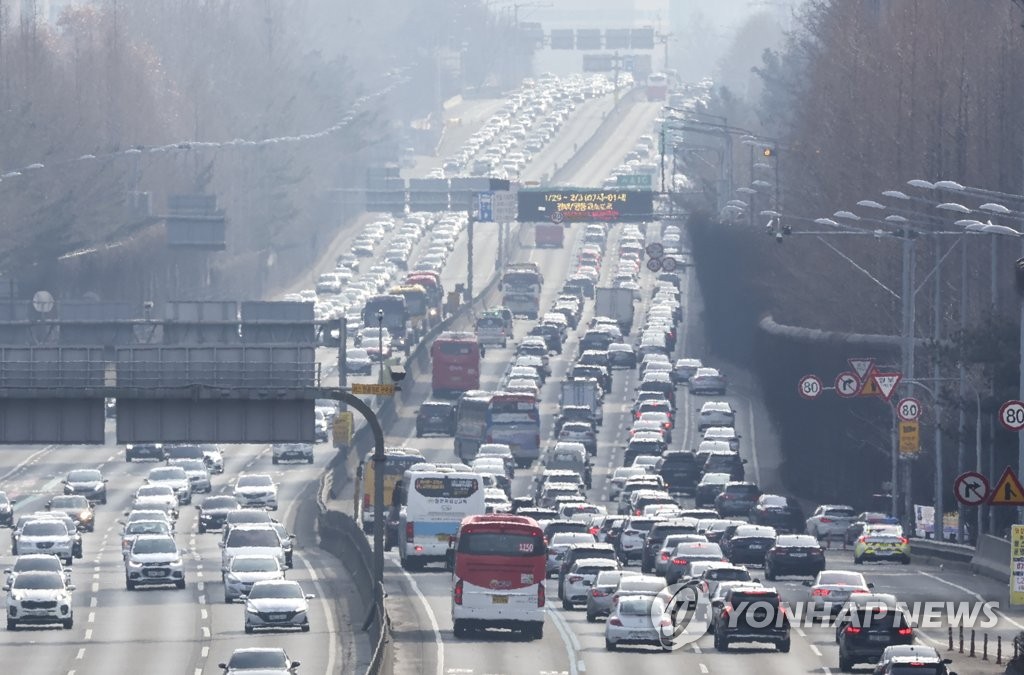- California Assembly OKs highest minimum wage in nation
- S. Korea unveils first graphic cigarette warnings
- US joins with South Korea, Japan in bid to deter North Korea
- LPGA golfer Chun In-gee finally back in action
- S. Korea won’t be top seed in final World Cup qualification round
- US men’s soccer misses 2nd straight Olympics
- US back on track in qualifying with 4-0 win over Guatemala
- High-intensity workout injuries spawn cottage industry
- CDC expands range of Zika mosquitoes into parts of Northeast
- Who knew? ‘The Walking Dead’ is helping families connect
S. Korea’s new COVID-19 cases hit over 17,000 for 3rd day amid Lunar New Year holiday
South Korea’s daily COVID-19 cases hit more than 17,000 for the third consecutive day Monday due to the rapid spread of the highly transmissible omicron variant amid the annual exodus for the Lunar New Year holiday.
The country reported 17,085 new COVID-19 infections, including 16,850 local cases, raising the total to 845,709, the Korea Disease Control and Prevention Agency (KDCA) said.
It inched down from the previous day’s 17,532 cases, ending the six-day record-breaking streak that began Tuesday.
The death toll from COVID-19 came to 6,755, up 23 from Sunday. The fatality rate stood at 0.80 percent.
The number of critically ill COVID-19 patients was 277, remaining unchanged from the previous day.
The health authorities said the detection rate of the omicron strain reached 80 percent last week, up sharply from 50.3 percent tallied a week earlier.
The country added 7,010 more omicron cases over the past week, putting the total at 16,879, the KDCA said. The fatality rate of the omicron variant is 0.15 percent.
Health officials said it took only five weeks for omicron to account for 80 percent of the country’s COVID-19 infections, but its fatality and severity rates are far lower than those of the delta strain.


People wait in line for COVID-19 virus tests at a test center at Seoul Station in downtown Seoul on Jan. 31, 2022. (Yonhap)
A revised virus response system went into effect Saturday to tackle the omicron wave that has become the dominant COVID-19 strain in the country.
Some 250 testing stations set up at public health centers and large hospitals will adopt both rapid antigen self-tests and polymerase chain reaction (PCR) tests. People can choose which one they want to take.
People aged over 60 or in high-risk groups, such as those with underlying illnesses, will be prioritized for PCR tests.
Beginning Thursday, local hospitals and clinics will also administer self-test kits.
The KDCA said the revised regime is designed to minimize critical cases and deaths, while preventing an overload and collapse of the medical system.
The system will expand nationwide after the three-day Lunar New Year holiday running till Wednesday.
Of the locally transmitted cases Monday, Gyeonggi Province that surrounds Seoul reported 5,105, followed by Seoul with 4,193 and the western port city of Incheon with 1,226.
As of Monday, 27.2 million people, or 53.1 percent of the country’s 52 million population, had received booster shots, the KDCA said. The number of fully vaccinated people came to 44 million people, accounting for 86 percent.











